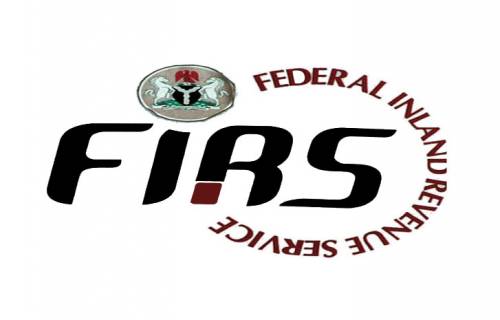
COVID-19 pandemic has impacted negatively on the Government’s revenue sources. In June 2020, the Federation Accounts Allocation Committee (FAAC) shared a total of N696 billion to the three tiers of the Government of Nigeria. FIRS alone contributed 70 percent of the amount shared while other revenue-generating agencies altogether contributed 30 percent. The Executive Chairman of FIRS, Muhammad Nami, in a recent telephone interview with NigeriaInfo (95.1FM) said without revenue from taxes, the Government would be unable to fund her programmes and activities. Nami also clarified why paying Stamp Duty on tenancy agreement should not cause a price increase in house rent.
Excerpts:
As the Executive Chairman of FIRS, how has your time on the job been so far?
Well, so far, so good. I give glory to God. I am not in a new terrain. Before I was appointed the Executive Chairman of the Federal Inland Revenue Service (FIRS), I had practiced tax for 26 years. So, in the tax terrain, this should be my 27th year.
This fact confirms what I have been engaged in since 1991 when I graduated from the University. I started tax practice in 1993, a few months after I completed my National Youth Service. This is the path God has carved for me. Little did I know that I would be talking to you today as the Executive Chairman of the FIRS.
There is this controversy about Stamp Duties. Why is FIRS charging Stamp Duties now?
We are in a period of economic downturn occasioned by the COVID-19 pandemic. However, let me clarify that Stamp Duties is not new in Nigeria. Stamp Duties came into effect in Nigeria as a result of Ordinance 41 of 1939. There have been several amendments to the Stamp Duties law over the years up to the Finance Act of 2019.
The most recent amendment recognised technology, e-commerce and cross border transactions in line with global best practices and current economic realities. Stamp Duty is a tax payable in respect of dutiable instrument as provided under the Stamp Duties Act, CAP S8, LFN 2004 (as amended).
Such instruments include Agreements, Contracts, Receipts, Memorandum of Understanding (MOU), Promissory notes, Insurance policies and others stipulated in the Schedule to the Stamp Duties Act. What is happening now is that we are looking into the tax laws and implementing the Stamp Duties Act, which is a form of indirect tax that is more viable in the economic situation we find ourselves today. It may interest you to know that the economic situation has increased the Government’s demand for funding.
The Annual target for Stamp Duties that was pegged at N17billion has been revised up to N446billion for FIRS to collect. Please note that this happened before the pandemic. We collected as much as N18 billion in 2019. Presently, the Finance Act, 2019 has taken away 60 percent of our tax base.
That is, 60 percent of the people who are supposed to pay Companies Income Tax will not do so. 60 percent of the people who are supposed to act as agents and pay Value Added Tax monthly will also not do so because their annual turnover is not more than N25 million. So, a large number of Small and Micro Enterprises in Nigeria today do not pay taxes.
What this means is that these companies will no longer act as Agents for collecting VAT. The implication of this is that 60 percent of Nigerian Taxpayers will neither pay VAT nor CIT. Nigerians may note that the Federal Government is so mindful of the Taxpayers that the Finance Act, 2019 was passed long before the COVID-19 lockdown in Nigeria. It seemed that the Government foresaw the pandemic and quickly passed the Act to give the palliatives contained in the Act.
Now that our target on Stamp Duties is about 3000% more than the previous years’, we have to inform Taxpayers that Stamp Duties is not only payable at the point of incorporating companies but also on other items that are chargeable. Chargeable items are more than a hundred. This is what we have done. We did not take these decisions from a Communiqué after a Management meeting.
This is in tax law. People keep asking, what is Stamp Duties, what are the rates, who are they paid to? We consulted the tax law to be able to explain and clarify to Nigerians what it is all about.
How is this Stamp Duty on tenancy agreement going to be implemented?
Our Public Notice on Tenancy Agreement captured only the last band which is 6%. It does not mean that it has a flat rate of 6%. It was a publication error and we sincerely apologise for that. The Stamp Duty on Tenancy is charged on a graduated rate, so that if your rent is from one year to seven years, the Stamp Duty payable is 0.78%. This is not up to 1%.
The implication of what I have said is that if your rent is N100,000 per annum, the stamp duty due at 0.78% is just N780.00. The second category is the Tenant whose agreement is above 7 years and up to 21 years. If an individual can afford to pay rent for 21 years, the Stamp Duty chargeable is 3%. Such a person is not going to pay rent for a long time, so, 3% is deducted to provide social amenities and fund infrastructure.
There are people who would comfortably pay rent for above 21 years; for 22 or 25 years, such people will not go back to their Landlords to pay rent again. Therefore, the law states that such people should pay 6% of the rent as Stamp Duty. That is the information that generated controversy across board. This is another opportunity we have to clarify it.
Is it the landlord or tenant who remits the Stamp Duty?
In VAT administration, the service provider collects the VAT component from the consumer. For ease of administration of Stamp Duties, in the case of Individual to Individual agreement, the Tenant is the agent of collection.
The Tenant is not expected to pay the Stamp Duty component of rent to the Landlord who is also an individual. What the Tenant is expected to do is, once an agreement is reached with the Landlord or Agent, he takes 0.78 percent of the rent sum to the bank and pays into the Stamp Duties account (for instance, 0.78% of 100,000 is N780.00).
The bank gives him a teller or an e-ticket as evidence of payment. The Tenant presents the payment evidence to the Landlord, before he is entitled to the copy of the rental agreement
ADAPTED FROM VANGUARD NEWSPAPER




